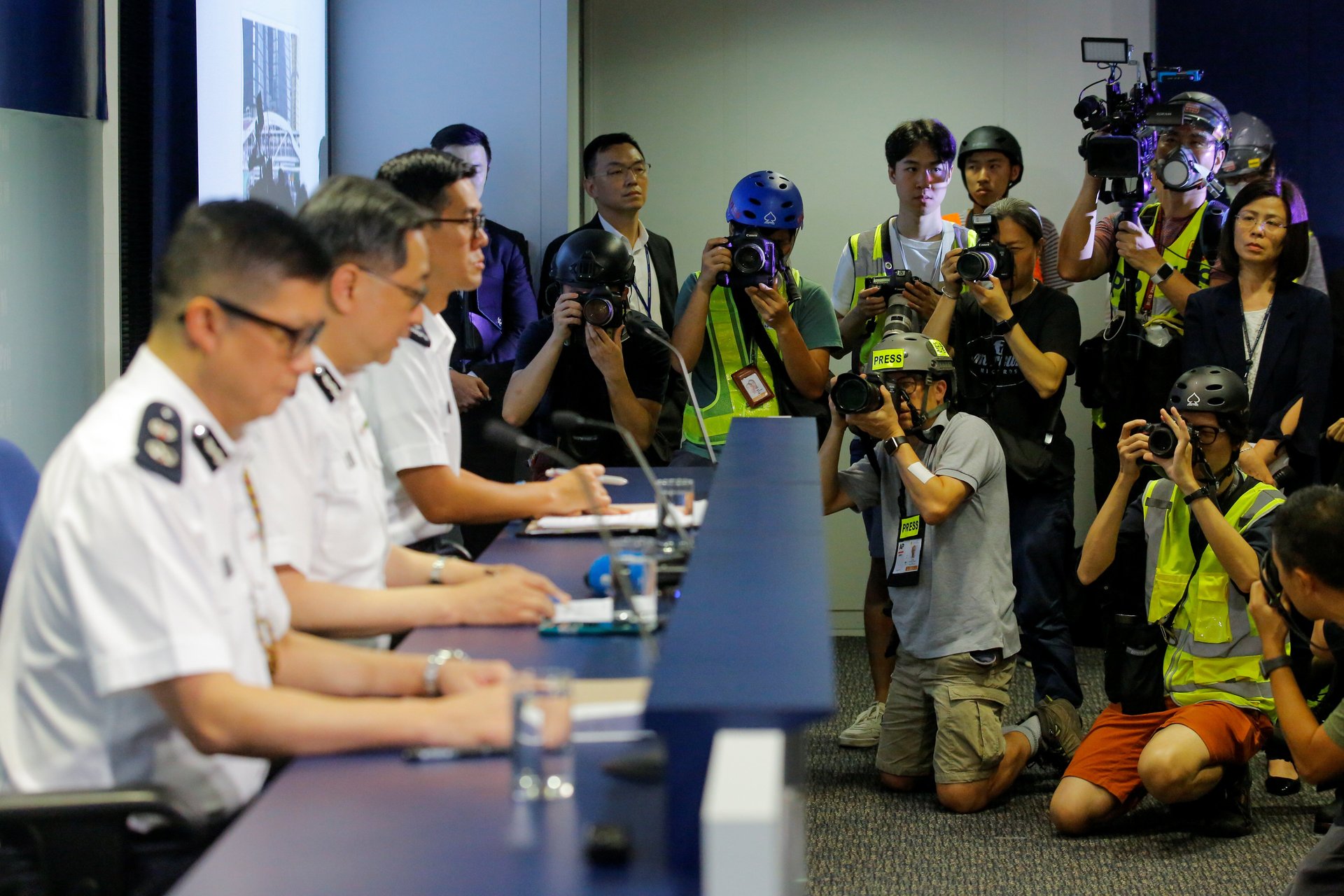Hong Kong journalists took over a police news conference in protest
A daily press conference hosted by the Hong Kong police was interrupted today (Oct. 28) when a journalist spoke up from the back of the room.


A daily press conference hosted by the Hong Kong police was interrupted today (Oct. 28) when a journalist spoke up from the back of the room.
The freelance journalist, Amy Ip, condemned the “long-running violence and obstruction” shown by police against members of the media, calling it “severe damage to Hong Kong’s freedom of the press.”
Then she took out a strong flashlight, shining it directly at the police officers chairing the conference in protest. “This is how you shine the lights at us reporters everyday, shining so that we can’t see through our lenses, so that we can’t see your reprehensible acts,” the woman said. Ip listed police officers’ acts of aggression against journalists, including shoving them violently, pulling off their gas masks, and deploying pepper spray and rubber bullets directly at reporters.
The officers quickly shuffled out of the room, and cut off their Facebook live-stream of the event. A number of journalists also staged a walk-out to boycott the conference.
The protest by journalists comes after what many regarded as a day of particularly aggressive police action against members of the media during protests yesterday (Oct. 27). Journalists were shot with tear gas canisters, pepper-sprayed, tear gassed, and manhandled. In one instance, an officer grabbed the camera of a video journalist from the local public broadcaster RTHK, and tried to rip off his gas mask. One freelance photographer, May James, was arrested and detained overnight, despite wearing her high-visibility press vest and carrying the necessary press credentials.
Throughout the months of protests, numerous members of the press have sustained varying degrees of injuries from police projectiles. In the most severe instance, Indonesian journalist Veby Mega Indah was shot in the face with a rubber bullet while she was conducting a Facebook live-stream, causing permanent loss of sight in one eye. In another instance, a driver for the local broadcaster Now News was hit with what appeared to be a beanbag round before having his hand zip-tied behind his back and detained at a police station, where he was allegedly beaten up and later sent to the hospital with a broken jaw.
It’s not the first time the Hong Kong press corps have staged a collective protest against police conduct. In June, a day after police deployed tear gas and rubber bullets for the first time in the protest movement, journalists showed up for the press conference in helmets and gas masks. They repeated a similar form of silent protest in September, after a weekend of clashes during which police fired multiple bursts of pepper spray at journalists. And at an August presser, journalists tapped their pens on helmets to protest police obstruction of press freedom.
Last Friday (Oct. 25), the police applied for and were swiftly granted an interim injunction, ostensibly to protect law enforcement officers from doxxing. But the vaguely worded order also bans, among other things, posting photos of officers and their families online, and contains no explicit exception for journalists and reporters, raising fears that it would undermine press freedom.